
William Juxon, bishop of London 1633-49. His attempts to assess parishioners met angry responses
On an autumn day in 1640, poor Arthur Duck found himself caught between rocks and a wet place. On the north bank of the Thames in London, he faced a hostile and rapidly swelling throng. Hastily boarding a boat, he fled across the heaving river to the safety of Lambeth Palace as his assailants hurled stones at him, chanting and making cacophonous quacking sounds. This assault marked the nadir of a particularly fraught period for the unfortunate Duck - and also reflected rising tensions that defined the 17th century.
Born in the Devon countryside, Duck had by 1640 reached the venerable age of 60. A church lawyer, he had held legal posts in several of England's great bishoprics. Indeed, he'd made an ally of the prickly archbishop of Canterbury, William Laud, who found Duck's expertise useful in a litigious age.
By the later months of that year, though, Duck was in the service of another prelate: William Juxon, bishop of London. It was on Juxon's orders that Duck embarked on a "visitation": touring the diocese to assess the state of things. Were parishioners behaving themselves? Were the church laws being obeyed?
What Duck found was very worrisome. Far from complying with the laws, people were angry about recent religious reforms. Supported by King Charles I, Archbishop Laud had pushed a policy of "beautifying" churches, enforcing strictly hierarchical forms of worship, and exalting the
clergy. These Laudian reforms had some support, but plenty of people - especially in the more religiously radical areas near London - saw them as authoritarian, and too close to Catholicism.
Denne historien er fra February 2023-utgaven av BBC History UK.
Start din 7-dagers gratis prøveperiode på Magzter GOLD for å få tilgang til tusenvis av utvalgte premiumhistorier og 9000+ magasiner og aviser.
Allerede abonnent ? Logg på
Denne historien er fra February 2023-utgaven av BBC History UK.
Start din 7-dagers gratis prøveperiode på Magzter GOLD for å få tilgang til tusenvis av utvalgte premiumhistorier og 9000+ magasiner og aviser.
Allerede abonnent? Logg på

Viking mussels
ELEANOR BARNETT digs into archaeological research to recreate a Viking-cum-AngloSaxon seafood dish from medieval York
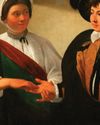
Fingers, frog's and fairies
Fortune telling was all the rage in the 16th and 17th centuries, and practitioners would stop at nothing to tap in to the supernatural. Martha McGill tells a story of Highland seers, tarot cards and encounters with the spirit world
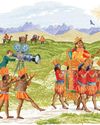
Nothing matches being with Alexander the Great on foot in the Hindu Kush
AT OUR LITTLE FILM COMPANY, MAYA VISION, we recently took the decision to digitise all of the rushes of our key films so that we could dispose of hundreds of boxes of tapes that had been kept in storage, throwing out stuff we thought we would never need again.

Library of the dead
Highgate Cemetery, created as a fashionable resting place for wealthy Victorian dead, is a veritable who's who of London's great and good. PETER ROSS roams the avenues of this most atmospheric necropolis
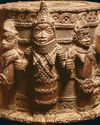
Slavery, exploitation and racism. These tragedies have long dominated histories of Africa. But there's another way to tell this story. And it's one that puts Africans right at the centre of their continent's extraordinarily rich and vibrant past
An 1414, in the Chinese city of Nanjing, a giraffe caused a stir. Amid a crowd of shocked, noble spectators, an official, leading the creature via a rope tied round its face, presented it to China's Yongle emperor. His officials said it was a qilin - an auspicious unicorn - which his sage governance had made appear.
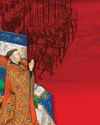
England's forgotten hero
When the Hundred Years' War was reaching a climax, one man was fighting tenaciously to secure the English claim to the French crown. So why, asks Joanna Arman, is Henry V's formidable brother, John, Duke of Bedford, not better known?
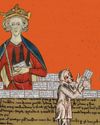
HENRY III AND THE MAGNA CARTA THAT MATTERED
King John's sealing of a charter at Runnymede in 1215 is one of the most feted moments of the Middle Ages. Yet, writes David Carpenter, it was the charter issued by his son 10 years later that became fundamental to England's history

Gutenberg publishes a pioneering new book
‘The printing press triggers an information revolution
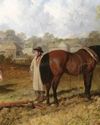
How empire ruptured rural Britain
We know that enslaved Africans and their descendants suffered in the distant colonies of empire. But, as Corinne Fowler explains, the colonial system also had dire impacts on people in the countryside of the 'motherland'
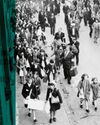
"I FELT VERY ALONE IN A WORLD GONE HORRIBLY MAD"
It was a moment of possibilities, dislocation and dread. Dan Todman tells the story of the 1.5 million urban Britons evacuated to the countryside at the start of the Second World War